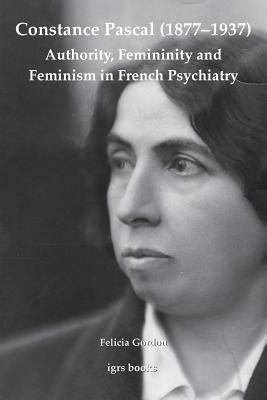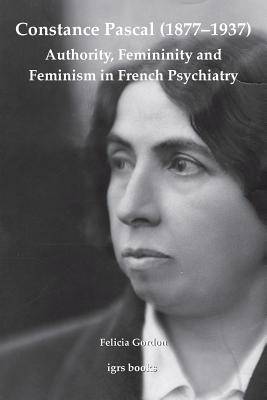
- Retrait gratuit dans votre magasin Club
- 7.000.000 titres dans notre catalogue
- Payer en toute sécurité
- Toujours un magasin près de chez vous
- Retrait gratuit dans votre magasin Club
- 7.000.0000 titres dans notre catalogue
- Payer en toute sécurité
- Toujours un magasin près de chez vous
Description
Constance Pascal's career in French psychiatry from 1908 to 1937 exemplifies the opportunities open to women in the French Third Republic as well as the prejudices they encountered. As the first woman psychiatrist in France, Pascal, of Romanian origin, attained professional success at the cost of suppressing her personal life. Best known for her work on dementia praecox, she founded one of the first schools in France for children with severe learning difficulties, and made remarkable contributions in the reform of asylum practices and, influenced by Freudian psychoanalysis, in psychotherapeutic intervention. Her feminism is demonstrated by her distinguished, often contentious, career in a hitherto all male profession and by her support for other women in their professional roles. Her unjustly neglected life story illuminates many of the conflicts experienced by women entering the professions during the belle époque and the inter-war years. The study's scholarly authority and ambitious theoretical range do not detract from its lively sense of the person and life struggles of the subject making this a fine demonstration of life history research enthralling for the general reader and expert alike.
Spécifications
Parties prenantes
- Auteur(s) :
- Editeur:
Contenu
- Nombre de pages :
- 256
- Langue:
- Anglais
- Collection :
Caractéristiques
- EAN:
- 9780854572366
- Date de parution :
- 14-11-14
- Format:
- Livre broché
- Format numérique:
- Trade paperback (VS)
- Dimensions :
- 152 mm x 229 mm
- Poids :
- 344 g

Les avis
Nous publions uniquement les avis qui respectent les conditions requises. Consultez nos conditions pour les avis.






